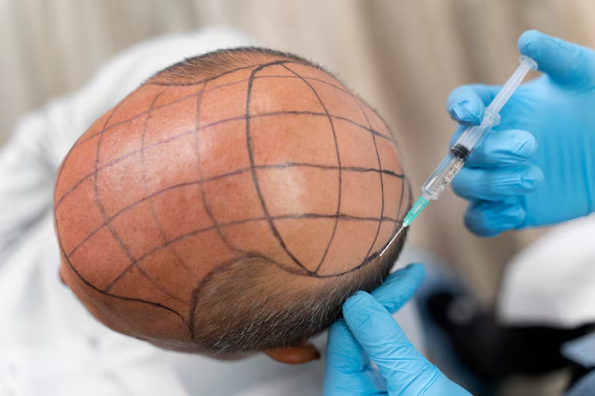What to Avoid After a Hair Transplant Session?
Undergoing a Hair Transplant is a significant step toward restoring your hairline and confidence. However, the success of the procedure doesn’t just depend on the surgery itself—it also relies heavily on proper post-operative care. Knowing what to avoid after a Hair Transplant in Dubai can make the difference between optimal results and potential complications.
Why Post-Transplant Care Matters?
Following your surgeon’s aftercare instructions is crucial for ensuring graft survival, minimizing scarring, and promoting healthy hair growth. Neglecting these guidelines can lead to infections, poor graft retention, or unnatural-looking results. By avoiding certain activities and habits, you can enhance healing and achieve the best possible outcome.
Avoid Touching or Scratching the Transplanted Area
The newly implanted grafts are delicate and need time to settle. Touching, scratching, or picking at scabs can dislodge grafts, leading to patchy growth or even permanent loss.
Displacement of hair follicles
Increased risk of infection
Delayed healing
Solution: Keep your hands away from the scalp and follow your doctor’s cleaning instructions carefully.
Steer Clear of Strenuous Activities
Physical exertion increases blood pressure, which can cause bleeding or swelling in the treated area. Heavy workouts, bending over, or lifting weights should be avoided for at least two weeks.
Activities to Avoid:
Gym workouts
Running or intense cardio
Any activity causing excessive sweating
Solution: Opt for light walks instead and gradually resume exercise after your doctor’s approval.
Say No to Smoking and Alcohol
Smoking restricts blood flow, impairing the healing process, while alcohol can thin the blood and increase bleeding risks. Both can negatively affect graft survival.
Why Avoid Them?
Slower recovery
Poor nutrient supply to grafts
Higher chance of complications
Solution: Abstain from smoking and alcohol for at least two weeks post-surgery.
Avoid Direct Sun Exposure
UV rays can damage sensitive scalp tissue, leading to inflammation or hyperpigmentation. Sunburn on the transplanted area can also hinder proper healing.
Protective Measures:
Wear a loose hat when outdoors
Stay in the shade
Avoid peak sunlight hours
Solution: Use sunscreen (only after the initial healing phase) or cover your scalp appropriately.
Skip Swimming and Saunas
Chlorine, saltwater, and excessive moisture can irritate the scalp and increase infection risks. Similarly, saunas and steam rooms can cause excessive sweating, leading to graft damage.
Hazards Include:
Infections from bacteria in water
Graft loosening due to moisture
Delayed scab shedding
Solution: Avoid swimming and saunas for at least a month post-surgery.
Don’t Wear Tight Hats or Headgear
Tight caps or helmets can rub against grafts, causing friction and dislodging them. They may also restrict blood circulation, slowing recovery.
Safe Alternatives:
Loose-fitting hats
Breathable fabrics
Avoid headwear for the first few days
Solution: If necessary, wear a loose, clean hat after the first week.
Avoid Hair Styling Products
Gels, sprays, and dyes contain harsh chemicals that can irritate the scalp and disrupt healing. Applying these too soon can damage grafts or cause infections.
Products to Avoid:
Hair sprays & gels
Chemical dyes
Styling creams
Solution: Wait at least a month before using any styling products.
Don’t Sleep Flat on Your Stomach or Side
Pressure on the transplanted area can dislodge grafts. Sleeping in the wrong position may also cause swelling or irritation.
Best Sleeping Position:
Keep your head elevated (45 degrees)
Use a neck pillow for support
Sleep on your back for the first week
Solution: Follow this routine for at least 7-10 days post-surgery.
Avoid Certain Medications (Unless Prescribed)
Blood-thinning medications like aspirin or ibuprofen can increase bleeding risks. Always consult your doctor before taking any new medication.
Medications to Avoid:
Aspirin
Ibuprofen
Herbal supplements (like ginkgo biloba)
Solution: Stick to prescribed pain relievers and follow medical advice.
Don’t Ignore Follow-Up Appointments
Regular check-ups ensure proper healing and allow your surgeon to address any concerns early. Missing appointments can lead to undetected issues.
Why Follow-Ups Matter?
Monitor graft survival
Early detection of complications
Adjust aftercare if needed
Solution: Attend all scheduled follow-ups for the best results.
Final Thoughts
A successful Hair Transplant requires patience and discipline in post-operative care. By avoiding these common mistakes, you can protect your grafts, promote faster healing, and enjoy natural-looking results. Always follow your surgeon’s advice for a smooth recovery journey.




Comments
Post a Comment